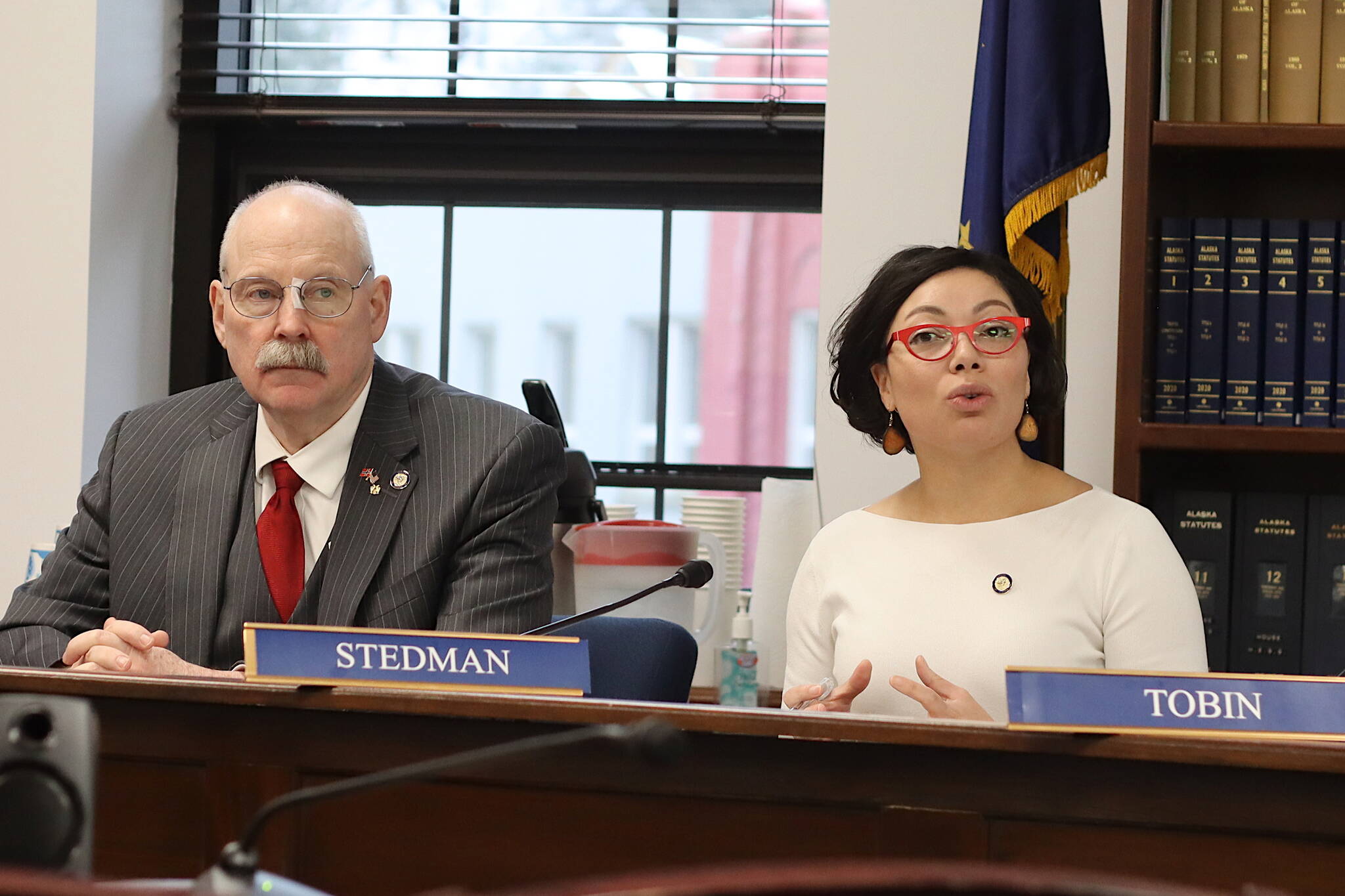A proposal to boost per-student funding for public schools by about 17%, increasing the current $5,960 base allocation by $1,000, was unveiled Wednesday by Alaska State Senate leaders as the “beginning of the beginning” of a long debate about the future of education spending and policies in the state.
Increasing what’s known as the Base Student Allocation is the top priority of some legislators this session due to it remaining essentially unchanged since 2017 (aside from a $30 increase approved last year), meaning real-world funding has decreased significantly due to inflation.
The bare-bones bill introduced by the Senate Education Committee (SB 52) merely contains the proposed increase, which falls short of the 21% total inflation since 2017, according to the U.S. Bureau of Labor Statistics’ consumer price index. The bill also so far contains no provisions addressing future inflation or extra costs such as transportation some schools are using BSA funds for.
“This is the first step of a long conversation we’ll be having,” Sen. Löki Tobin, an Anchorage Democrat who chairs the education committee, said during a press conference Wednesday with other members of the Senate majority, which consists of nine Democrats and eight Republicans.
Republican Gov. Mike Dunleeavy proposed another year of flat funding in his budget for next year and the Republican-led majority of the state House is also expected to oppose the increase sought by the Senate.
“Our biggest problem right now is how do we get an increase in BSA through the House,” Senate President Gary Stevens, a Kodiak Republican, said in an interview Tuesday. “I don’t know if we do that right now.”
Another significant issue is how increasing education spending will affect other budget priorities including the Permanent Fund dividend, municipal debt relief and health care. Dunleavy, for instance, is proposing a “full” PFD of about $3,800 and a budget deficit legislators say may be twice the governor’s $250 million estimate, while senators talking about the education bill Wednesday suggested a more balanced approach.
“If we had a $1,300 dividend we could pay for an education increase, we could pay for the deficit and we could pay for the municipal debt for the entire state with this year’s cash flow,” said state Sen. Bert Stedman, a Sitka Republican who co-chairs the Senate Finance Committee.
“We’ve got make a choice: do we want to teach our kids to cash checks, or do we want to teach them to read and write?”
The Senate’s proposal would cost about $257 million in increased BSA funding, according to a legislative fiscal analysis. By comparison, Dunleavy’s total proposed budget for next year is about $7.3 billion, including $2.4 billion for PFDs and $1.2 billion in BSA funding under the existing formula.
Increases to other government programs such as transportation and health care may also have benefits to education by relieving school districts of the costs they’re paying from BSA funds to fulfill those necessities, Tobin said.
The Senate’s proposed increase comes in the wake of Alaska posting some of the worst standardized test results in the U.S. Lawmakers participating in Wednesday’s news conference said the effective decline in funding since 2017 has resulted in larger class sizes and other detrimental effects that are likely contributors to low test scores.
“Last year we did pass a bill that was full of accountability measures,” Tobin said, referring to the Alaska Reads Act, which among its provisions included the $30 BSA increase. “One of the things I will admit is we didn’t fund it as well as we should have.”
• Contact Mark Sabbatini at mark.sabbatini@juneauempire.com

